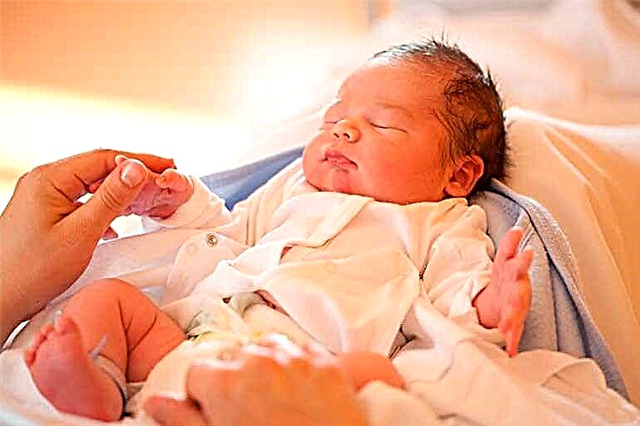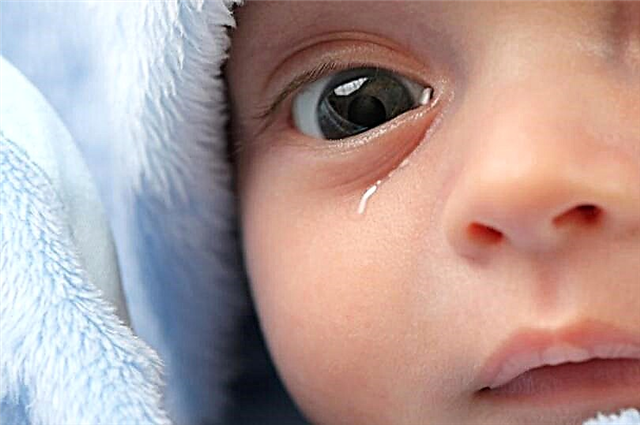An examination of a child under one year old should be carried out monthly, provided that there are no complaints from the mother. Mom will be able to find out which doctors are undergoing at 1 year at the next appointment with a pediatrician, where she will be given directions for tests and a list of specialists.
Relevance of the issue
In accordance with the order of the Ministry of Health of the Russian Federation of August 10, 2017 N 514n "On the procedure for conducting preventive medical examinations of minors", all children must undergo certain specialists within the specified time frame.
Clinical examination of the child population requires a more serious and attentive attitude, because regular examinations of a child allow detecting diseases in the early stages, preventing pathological conditions, as well as assessing and tracking physical and neuropsychic development in dynamics.
For each age, a specific list of specialists has been created, the passage of which is mandatory, and there is also a list of mandatory laboratory examinations.
Schedule of a medical examination for a child at 1 year old
Any mother in certain decreed terms is interested in the question: What kind of doctors do they pass? The pediatrician, before the onset of the child's first birthday, must inform the parents that he needs to undergo certain specialist doctors and conduct a laboratory, instrumental examination.
Mom needs to make an appointment with doctors in advance so that all specialists can go through at about the same time. At 12 months, an examination by a neurologist, pediatric surgeon, orthopedic traumatologist, otorhinolaryngologist, ophthalmologist, and, finally, a pediatrician is required.
For what purpose is a child at 1 year old sent for a medical examination to narrow specialists?
Each specialist examines the child with an emphasis on his specialty in which he works. And also the doctor knows what problems a one-year-old baby may have and where exactly to look for pathology.
Ophthalmologist (oculist)
An ophthalmologist's examination is extremely important for children. The organs of vision transmit information to the brain, and then the child has the opportunity to fully develop. The doctor determines in full the movement of the eyeballs or not (pathological formations can restrict movement).
By the age of 12 months, the doctor determines the presence of strabismus. This pathology is often found in children, so early diagnosis is of great importance. Determining the pupil's response to light will also allow the doctor to assess the child's visual ability. The ophthalmologist examines the fundus in order to exclude congestion in the vessels of the organ of vision.
This information is very important for a neurologist, therefore it is recommended to first consult an ophthalmologist and then a neurologist.
In addition to serious problems, a specialist can, upon examination, identify conjunctivitis of various origins and prescribe treatment.
Neurologist

Normally, a neurologist examines a child for the first time at 1 month of age. Then he studies in detail the history of pregnancy and childbirth, because it is in the process of labor activity that various injuries can form that affect the further development of the child.
The state of the central nervous system can be assessed using various reflexes. But they are not objectively assessed, because reflexes can decrease after feeding and sleeping. Often, in a month-old baby it is difficult to identify any neurological pathology. But closer to the year, when the child already has a number of skills and abilities, it is already possible to create some picture of his health.
A neurologist evaluates the size of the child's large fontanelle. By the year it should be closed. But its point size is allowed. If there is no dynamics of decrease, then this may indicate hydrocephalus or other pathological processes occurring in the baby's brain.
Also, a neurologist assesses the neuropsychic development of a child. In a year, children usually already take independent steps, holding onto a support or hand. But this fact should not apply to everyone. At this age, a child can actively crawl and stand up independently, which is also the norm.
Before going to a neurologist, parents need to remember all the unpleasant moments that they had during this year. These moments include convulsions, increased excitability, poor sleep, frequent regurgitation, and others. Complaints must be spoken to the doctor for a complete and correct conclusion about the state of health.
Pediatric surgeon
First of all, a pediatric surgeon on examination tries to identify a possible surgical pathology. All kinds of hernias can be found in a healthy child who is not worried about anything. It can be a hernia of the white line of the abdomen, inguinal or femoral hernia.
Also, the surgeon must assess the condition of the genitals in boys, determine the presence of testicles in the scrotum. It is also possible for boys to have dropsy of the testicle, in which the fluid in its membranes is determined.
Otorhinolaryngologist (ENT)

An examination by an otorhinolaryngologist involves examining the ears, throat, and nose. Using an otoscope, the doctor assesses the condition of the external auditory canal. Moving on to examining the nose, it is important to characterize the nasal septum. After all, if it is curved, then it can interfere with free nasal breathing.
When examining the throat, the doctor draws conclusions about the mucous membrane of the oral cavity, and also pays attention to the tonsils. In a year, they usually fit into the norm. But then, when the baby starts to hurt, they increase, and then the child may need treatment.
Traumatologist-orthopedist
Consulting an orthopedic traumatologist is also extremely important. For each age, there are different problems, the presence or absence of which the doctor reveals during the examination. So, for example, a month-old baby often has a pathology associated with the hip joints (dysplasia) or with the cervical spine (torticollis).
A one-year-old child has new problems that can be faced. When the baby stands on his feet and takes independent steps, a load is formed on the legs and feet, hence various diseases. Early detection of such a pathology is extremely important, since at this age there is a high probability of correcting various deformities.
Pediatrician
After passing all the specialist doctors, it is necessary to complete the medical commission at the pediatrician. The pediatrician gets acquainted with the diagnoses and recommendations of all specialists and gives an opinion. The pediatrician assesses the physical and neuropsychiatric state of the child. Against this background, it determines the health group and risk groups for various pathological conditions.
Also, the pediatrician gives parents general advice on feeding, bathing, walking. Reveals the symptoms of rickets and determines the individual dosage of vitamin D.
Laboratory methods for examining a one-year-old baby

In addition to the above specialists that a one-year-old child needs to go through, there are also necessary laboratory and instrumental studies. The latter includes electrocardiography to determine the frequency and rhythm of heart contractions, the direction of the deviation of the electrical axis of the heart. Also, electrocardiography will reveal some irregularities in the work of the heart. But, as a rule, cardiac pathology is not observed in healthy children undergoing routine medical examination.
From laboratory tests, the child needs to pass a general blood and urine test. A complete blood count is, first of all, necessary to identify background pathology (anemia). Also, a clinical analysis can detect other blood diseases. A general analysis of urine helps in the early stages to determine the pathology of the kidneys, as well as a violation of their various functions.
The diagnosis is not made on the basis of general tests. Deviations from the norm are the reason for an in-depth examination of the patient.
Preparing for a medical examination. Memo to parents
Before starting a medical examination, a pediatrician must give a list of necessary specialists and referrals for laboratory and instrumental studies. No special preparation is required for medical examination and electrocardiography.
Before passing a general blood test, it is necessary to prepare the baby. Blood should be donated on an empty stomach early in the morning. If it's cold outside, it is important to warm the baby's fingers, otherwise the blood will flow very slowly, which will create additional problems during the analysis.
Before collecting urine, the child must be thoroughly washed. You need to collect a medium portion. That is, the child is asked to urinate, then urine is taken, and the rest of the volume is released into the pot.
If the child is registered with the dispensary
A child who is registered at a dispensary for a specific disease with a particular specialist has some peculiarities during a medical examination. The doctors remain the same ones who need to go through. But for a specific disease, a more thorough diagnosis is required for further patient management and treatment.
There are cases when, during a medical examination, a doctor identifies a disease, then he immediately puts the child on a dispensary account and determines the observation schedule. Also, the information comes under the control of a pediatrician, who will guide the child taking into account the identified pathology.

Conclusion
Parents need to remember that there are decreed terms during which it is necessary to pass a number of specialists. Examination by doctors is extremely important for early detection of possible pathology. Diseases detected in the early stages have a high chance of cure.
During the consultation, parents should talk about any complaints that bother the child. It is also recommended to ask questions of interest to parents. For a more accurate diagnosis, it is important to remember about preparation before laboratory tests. A pediatrician will always answer the question of which doctors pass in 1 year, and will also help with passing the medical commission.



